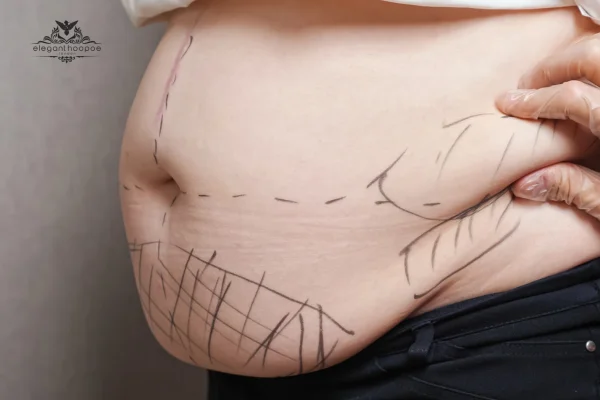What Are the After Effects of Liposuction on Your Body and Mind?
Liposuction reshapes the body and boosts confidence, but it also comes with important aftereffects:
- Physical Changes: Immediate body contouring improvements, but results depend on skin elasticity and post-surgery weight management.
- Potential Risks: Swelling, bruising, numbness, and rare complications like infections or uneven fat distribution with weight gain.
- Psychological Impact: Increased self-esteem for many, but some may struggle with unrealistic expectations or body image concerns.
- Long-Term Effects: Fat cells are permanently removed, but new fat can accumulate elsewhere if lifestyle changes aren’t maintained.
Understanding the after effects of liposuction helps set realistic expectations for a successful outcome.
Impact of liposuction
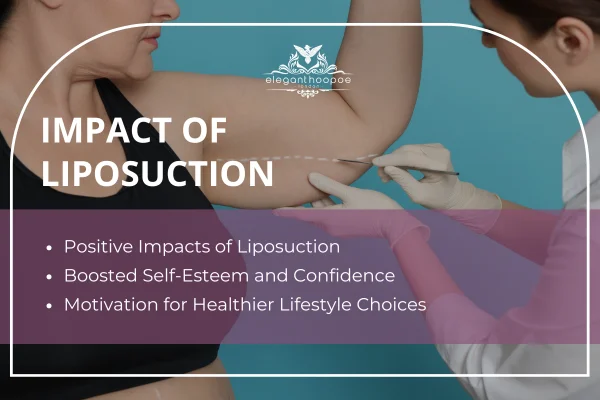
Liposuction in Dubai, a popular cosmetic procedure, has been transformative for many individuals seeking to reshape their bodies and improve their confidence. This surgical intervention, designed to remove excess fat deposits from specific areas, has both physical and psychological impacts. While many individuals report positive outcomes, understanding the full scope of liposuction’s effects, both benefits and potential drawbacks, is essential for anyone considering this procedure.
- Positive Impacts of Liposuction: Enhanced Body Contour and Proportion: One of liposuction’s most immediate and noticeable impacts is improving body shape. Individuals who struggle with localized fat that doesn’t respond to traditional weight loss methods often see significant changes in their silhouette. This improved body contour can make clothes fit better and increase overall body harmony.
- Boosted Self-Esteem and Confidence: For many, the psychological benefits of liposuction are as important as the physical outcomes. Achieving a desired body shape can profoundly impact self-image, leading to greater confidence in social and professional settings. Feeling good about one’s body can translate to a more positive outlook on life and an increased willingness to engage in activities that may have been avoided before.
- Motivation for Healthier Lifestyle Choices: While liposuction is not a weight-loss solution, many patients report being motivated to maintain their results through a better diet and regular exercise. This procedure often catalyzes healthier habits, encouraging individuals to continue making choices that support their long-term well-being.
Limitations and Considerations
1) Not a Substitute for Weight Loss
It’s crucial to understand that liposuction is not an obesity treatment. It is most effective for individuals who are already close to their ideal body weight but have pockets of stubborn fat. Candidates should have realistic expectations about what liposuction can achieve and view it as a body contouring procedure rather than a weight-loss method.
2) Potential Risks and Complications
As with any surgical procedure, liposuction comes with risks. Some common side effects include swelling, bruising, and temporary numbness. In rare cases, more serious complications can arise, such as infections, blood clots, or changes in skin sensation. Choosing a qualified, experienced surgeon is crucial to minimize these risks.
3) Skin Elasticity and Results
The outcome can be influenced by the patient’s skin elasticity. Younger individuals with good skin tone typically see better results, as the skin can naturally adjust to the body’s new contours. Older patients or those with less elastic skin may experience sagging or uneven results and might need additional procedures to achieve the desired appearance.
Long-Term Impacts of Liposuction
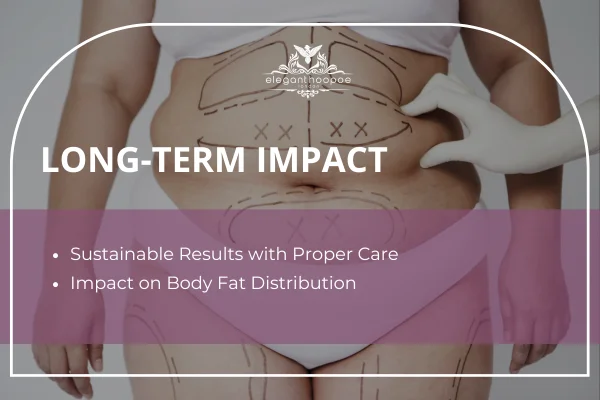
- Sustainable Results with Proper Care: One of the advantages of liposuction is that it permanently removes fat cells from targeted areas. However, this does not prevent new fat accumulation if a patient gains weight post-surgery. Maintaining a stable weight through a balanced diet and regular physical activity is essential for sustaining the results of the procedure.
- Impact on Body Fat Distribution: After the procedure, the body does not regenerate the fat cells removed from the targeted area. However, if significant weight gain occurs, fat may accumulate in other areas of the body. This shift in fat distribution can sometimes create a disproportionate look if post-surgery lifestyle changes are not maintained.
-

Psychological and Emotional Considerations
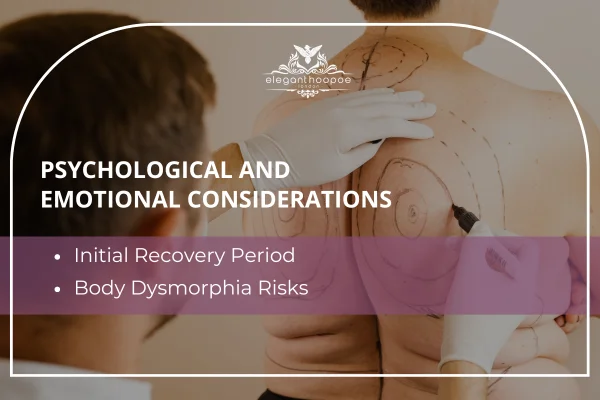
1) Initial Recovery Period
The recovery phase after liposuction can be emotionally challenging. Swelling, bruising, and discomfort in the treated areas may cause patients to feel temporarily dissatisfied with their appearance. It is important to set realistic expectations and understand that the full results may not be visible for several weeks or even months.
2) Body Dysmorphia Risks
While many people experience a positive boost in self-esteem, liposuction is not a cure for body image disorders such as body dysmorphic disorder (BDD). Individuals with an unrealistic or negative perception of their body may not achieve the emotional benefits they hope for post-surgery. Consulting with a mental health professional before deciding on surgery can be beneficial for those with underlying body image concerns.
Who is an Ideal Candidate for Liposuction?
Ideal candidates for liposuction are individuals who:
- Are at or near their ideal body weight.
- Have good skin elasticity and muscle tone.
- Are non-smokers.
- Have realistic expectations for the outcome.
- Understand the risks and are in good overall health.
Advancements in Liposuction Techniques
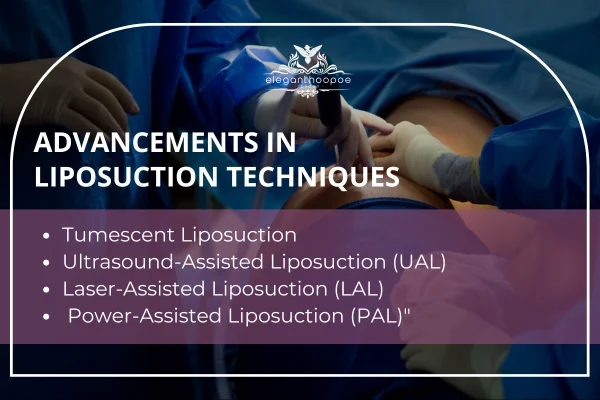
The field of cosmetic surgery has seen significant advancements, making liposuction safer and more effective.
- Tumescent Liposuction: The most commonly performed type, involves injecting a solution of saline, lidocaine, and epinephrine into the targeted area. This helps to reduce bleeding and makes fat easier to remove.
- Ultrasound-Assisted Liposuction (UAL): Uses ultrasonic waves to liquefy fat before removal. This technique is particularly effective for dense fat deposits and larger areas.
- Laser-Assisted Liposuction (LAL): Utilizes laser energy to melt fat, making it easier to remove while also promoting skin tightening.
Power-Assisted Liposuction (PAL): Involves a vibrating cannula that helps break up the fat cells, leading to more precise and quicker procedures.


